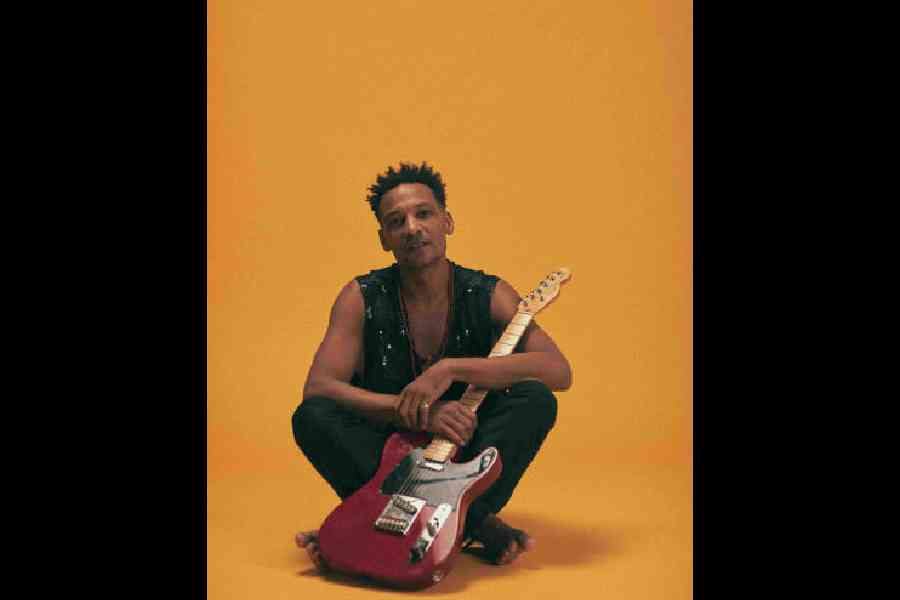Blending Afro-Caribbean roots, soul, funk, and global grooves, French-Caribbean artiste David Walters made music lovers in the country sway to his infectious rhythms on his recently concluded India tour. t2 connected with the musician ahead of the Calcutta leg of his performance for a conversation on his experience in India, his recent album and more.
What has it been like performing in India? Are you excited about coming to Calcutta?
So far, the concerts have been extraordinary. I was surprised to receive such a warm welcome from an audience that barely knows me — children as young as three, elders in their 80s, and full families. These are real encounters — baths of joy.
I am especially looking forward to the Calcutta performance. It is part of my India tour where I’m collaborating with Indian folk and classical musicians. We’re blending parts of my repertoire with traditional Indian flavours — it’s going to be immersive, and I’m grateful for these musical exchanges.
Who do you consider your ideal audience? How do you usually connect with them during a show and what do you want your music to make them feel?
Dance helps us heal — it uplifts us. That’s the spirit I bring to my performances. I try to create moments of joy, reflection, and connection.
I don’t think there is an ‘ideal audience’ — I’ve played for children, elders, youth, and whole families. What matters is presence and openness. My music is about sharing — letting rhythm, emotion, and silence speak just as much as words.
Your music blends sounds ranging from soul to funk to contemporary. Share with us your journey so far and tell us how you developed such a distinctive musical identity.
I started out as a DJ, then became a hip-hop beatmaker, and eventually began learning percussion, singing, and guitar because I lacked harmonic understanding.
My favourite artistes range from Fela Kuti to Manu Dibango, J Dilla, Gil Scott-Heron, and soul legends like Marvin Gaye. I’ve always been drawn to black music from the ’70s, Caribbean rhythms and African influences. Over time, these sounds became part of my natural expression.
We know that your latest album Soul Tropical features multiple collabs and is a product of eclectic influences. What does this album symbolise to you as an artiste?
I put a lot of emotion into Soul Tropical — love, disappointment, melancholy, rebirth and sharing. It’s vibrant and life-affirming. I’ve said before that it’s ‘music to heal’ and for me, dancing and rhythm are part of that healing. Even grief can be danced through, like we did at my mother’s funeral. The rhythm carries memory, release and joy.
Do you have plans for any new collaborations with an Indian musician?
Yes, I really wanted these new collaborations focused on Indian classical music. I have a deep respect for its meaning and depth. We’ll be reinterpreting my repertoire with this traditional flavour. I would love to record more with Indian musicians — I just need more time in India. There is a real connection between India and the Caribbean. I hope the Gods of music will give us that space to create more.
You define the quintessential modern global musician in many ways. Do you think musicians like you will show the way towards what can truly be described as world music?
I think in some ways, yes. I’m deeply rooted in the Afro-Caribbean tradition, which is a rich and powerful language in itself. What we’ve been doing in places like Bangalore and Calcutta is bringing that language into a dialogue with Indian musicians — whether they come from Hindusthani or Carnatic backgrounds. It’s not about fusing styles superficially, but about truly engaging with each other’s musical vocabularies and respecting each other’s cultures.
Through this process, both of us get to learn and evolve, and we’re able to take the audience along on that journey. In that sense, it becomes a genuine exploration of what “world music” could be — not as a label, but an experience that grows out of honest artistic exchange.










